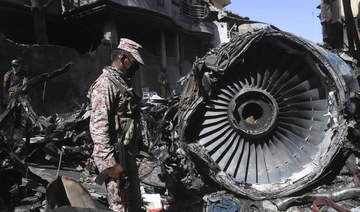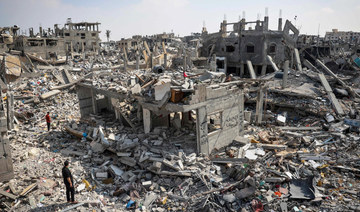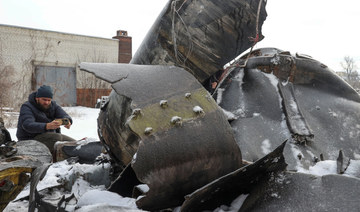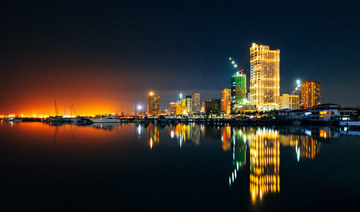ISLAMABAD/NEW DELHI: Pakistan on Wednesday asked India to reduce its diplomatic personnel in Islamabad by 50 percent, Pakistani Foreign Minister Shah Mahmood Qureshi said.
In a sign of mounting tensions between the two neighboring nuclear powers, India said on Tuesday it would expel half of Pakistan’s embassy staff in New Delhi — accusing them of “espionage” and “terrorism” — within seven days.
“If Pakistani staff return home, Indian staff will also go back,” Qureshi said in a statement, adding that Islamabad would “fully respond” to New Delhi’s claims against Pakistani diplomats, which he said were in clear violation of the 1980 Vienna Convention.
“Indian allegations against the staff of the Pakistani High Commission are baseless. India is trying to find excuses to carry out false-flag operations in Pakistan and trying to cover its embarrassment at the hands of China,” he said, referring to the recent battle between India and China along the Ladakh border.
The latest development comes a few days after India accused Pakistan of kidnapping and abusing two of its embassy personnel in Islamabad.
“These officials, who returned to India on June 22, have provided graphic details of the barbaric treatment that they experienced at the hands of Pakistani agencies,” India’s Ministry of External Affairs (MEA) said in a statement on Tuesday.
As a reciprocal measure, Pakistan’s Foreign Office summoned the Indian chargé d’affaires, asking him to reduce the size of the Indian High Commission by 50 percent within seven days as well.
Retired Lieutenant General Talat Masood, a defense and security expert, said India is acting aggressively towards Pakistan to cover up the “humiliation” it suffered in its clash with Beijing and Nepal.
“India is going through severe problems both internally, due to a bad economy, and externally, due to renewed conflicts with China and Nepal. Indian humiliation by China at Ladakh has really tarnished its image in South Asia as well as worldwide,” he told Arab News, adding that Indian Prime Minister Narendra Modi’s government was “on the defensive” and “under pressure.”
“India is acting like a bully toward Pakistan to cover up its weaknesses against China and to try to satisfy its internal public. Pakistan has to remain prepared for any Indian adventure, both militarily and politically,” he said.
Former Foreign Secretary Tehmina Janjua said diplomacy was “critical” and that downgrading diplomatic relations “would not help India at all.”
“India is, unfortunately, acting like a spoiled child in the region. It (India) is the one which has been creating problems for Pakistan at its borders as well as in the region,” she told Arab News. “Pakistan is ready to defend its national integrity and sovereignty, as it has done in the past. It cannot be cowed by Indian threats.”
India’s ruling means only 55 personnel will remain at Pakistan’s embassy in New Delhi. India took similar measures after the terror attack on the Indian parliament in 2001.
“The behavior of Pakistan and its officials does not conform to the Vienna Convention and bilateral agreements on the treatment of diplomatic and consular officials. On the contrary, it is an intrinsic element of a larger policy of supporting cross-border violence and terrorism,” India’s MEA statement said.
Relations between the two countries have been strained recently. They were on the brink of military escalation after a suicide attack on a paramilitary convoy in South Kashmir’s Pulwama district in February and New Delhi’s abrogation of Jammu and Kashmir’s special status in August last year, following which Islamabad sent India’s high commissioner back to Delhi and recalled its envoy from India. Neither high commissioner has been replaced yet.
Those developments led to a suspension of trade, reduction of visa services and cancellation of overflight rights between the two neighbors.


























